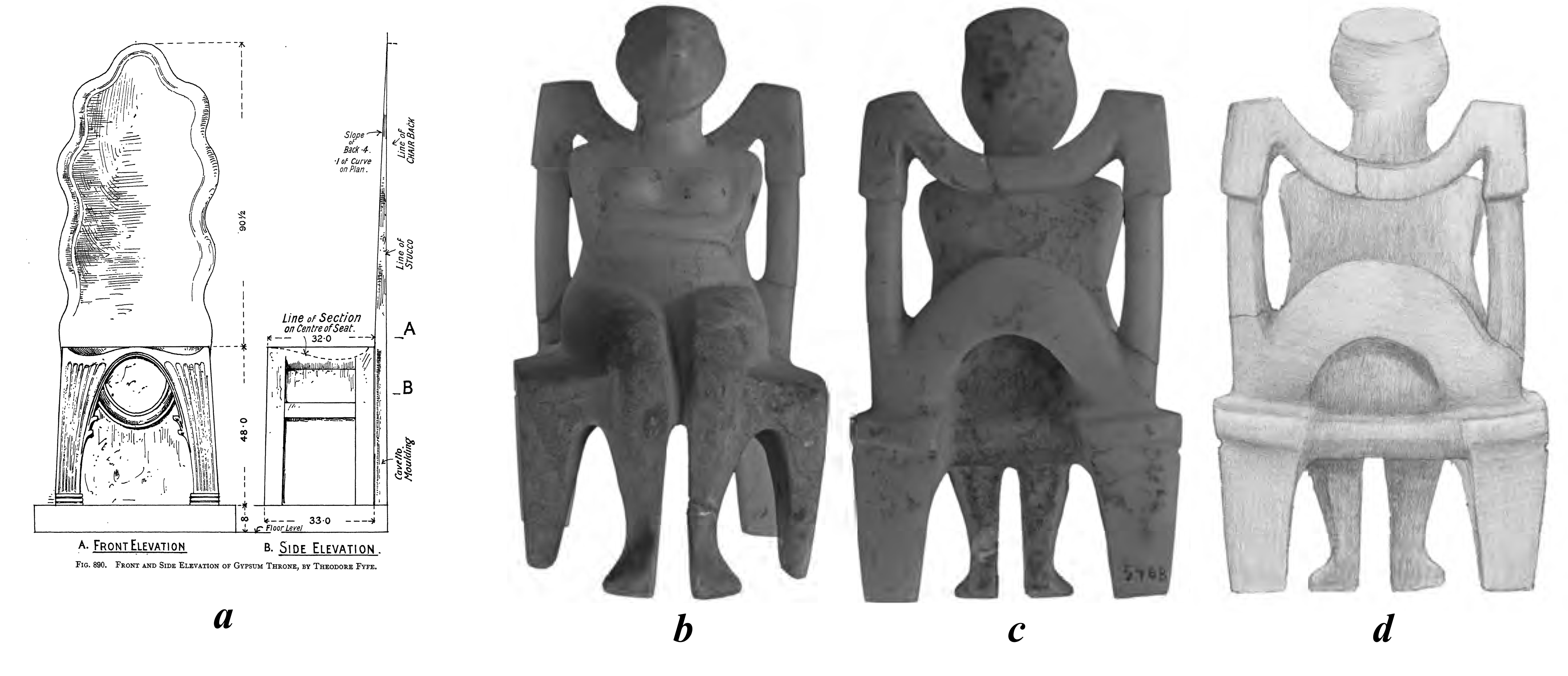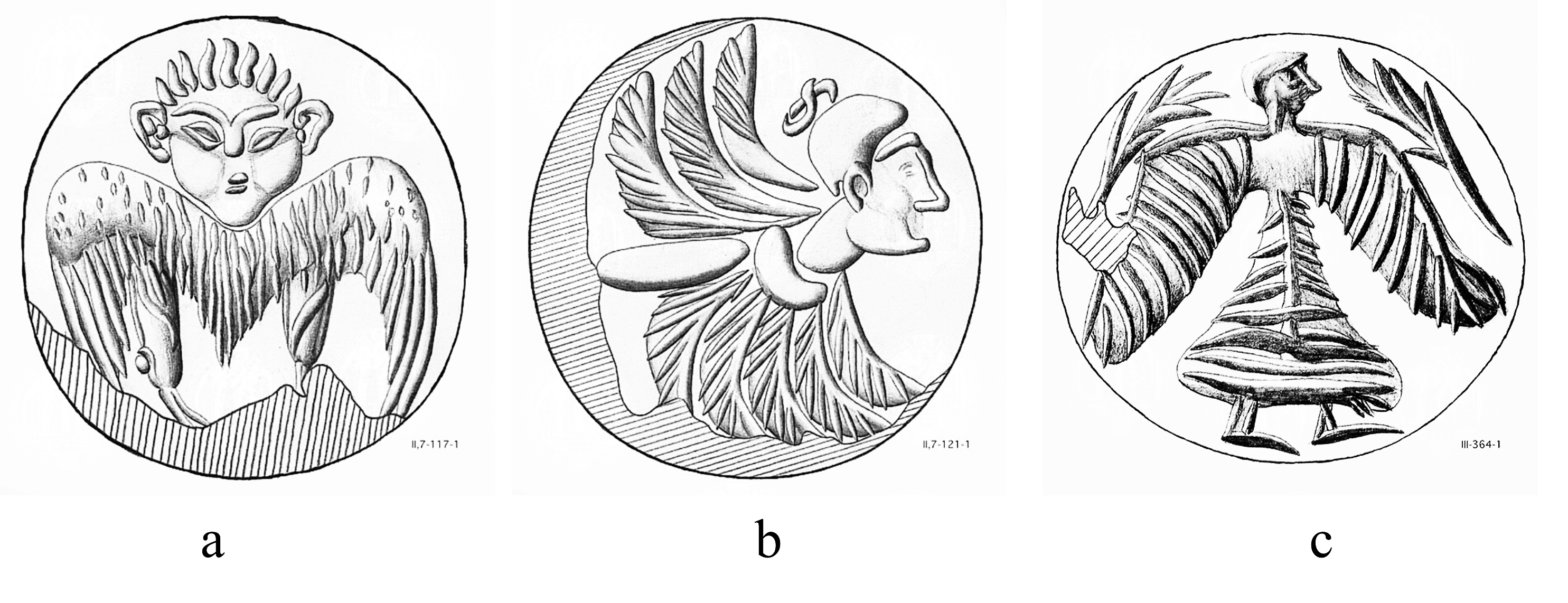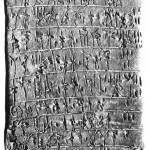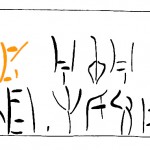‘HEADS’ OF THRONES: ONCE MORE ON MYCENAEAN se-re-mo-ka-ra-a-pi AND se-re-mo-ka-ra-o-re
Vassilis Petrakis
This article considers the interpretation of the Mycenaean terms se-re-mo-ka-ra-a-pi (Plural) and se-re-mo-ka-ra-o-re (Singular) that belong to the technical descriptive vocabulary of elaborate chairs (termed to-no /thornoi/) in the Linear B tablets of the Ta series from the palace complex of Pylos (c. 1200 BCE). The interpretation of the term as a compound of *se-re-mo- and -ka-ra is discussed. With regard to the first component, its interpretation as related to an early form */Se(i)rēm-/, related to later Greek Σειρήν ‘Siren’, originally suggested by Hugo Mühlenstein, is assessed through an analysis of iconographic evidence suggesting that, although rare, monsters with human and avian components, close to the 1st millennium BCE form of ‘Sirens’, are present in Aegean imagery. The suggestion that Late Bronze Age ‘sirens’ could have the form of the monsters classified as ‘sphinxes’ is also critically reviewed. The article then turns its focus on the second component of the term, ka-ra, commonly interpreted as /karā/ ‘head’ (cf. later Greek κάρᾱ). Mycenaean and later Greek attestations of ka-ra and other terms for ‘body parts’ (e.g. the anthropomorphic descriptions of crafted items with ‘heads’, ‘legs’ or ‘ears’ in Linear B and later Greek inscriptions) are reviewed. On the basis of the later Greek adjective σφιγγόπους ‘with sphinxes on its legs’ referring to couches it is proposed that ka-ra has the figurative meaning of a ‘head’ of the chair (possibly the upper part of its back-rest), related to an anthropomorphic perception of these furniture items. It is suggested that *se-re-mo-ka-ra- indicates decoration in which *se-re-mo- was placed on the ka-ra ‘head’ of the inventoried to-no ‘chair’. This interpretation enables a better understanding of se-re-mo-kara- compound as indicating the ‘decoration of the ka-ra ‘head’ <of the described chair> with se-re-mo-’. The interpretation of the actual form of *se-re-mo- is left open.
Petrakis V., ‘Heads’ of Thrones: Once More on Mycenaean se-re-mo-ka-ra-a-pi and se-re-mo-ka-ra-o-re, SMEA NS 9, 2023, 115-136.




